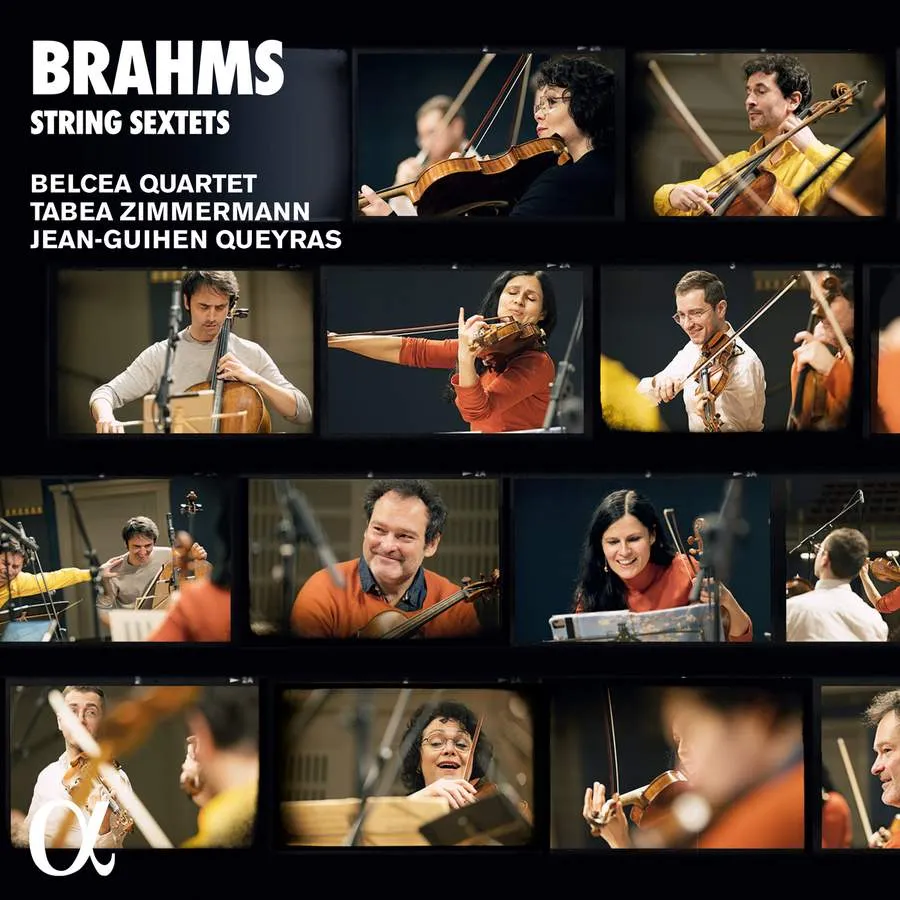
Brahms String Sextets Nos 1 & 2 Tabea Zimmermann (violin), Jean-Guihen Queyras (cello); Belcea Quartet Alpha Classics ALPHA792 75:54 mins
Brahms’s two string sextets Opp. 18 and 36 are masterpieces on a lavish scale. Using a string quartet and a darker half gives enough extra potential for density and variety, and Brahms embraces it with gusto. Both works predate his string quartets; if the youthful composer (he wrote Op. 18 aged 26) was intimidated by Beethoven’s symphonies, that titan’s string quartets were no less formidable a precedent and it was 1873 before Brahms could try that genre without later destroying his efforts. In the sextets he had the space to find his feet with confidence; when his friend Joseph Joachim, who led Op. 18’s premiere in 1860, suggested he make amendments to the finale, Brahms ignored him. Written five years later, the G major work is slightly slenderer, subtler and, to quote Donald Tovey, ‘ethereal’; one motif in the first movement enshrines the name of Brahms’s former fiancée, Agathe von Siebold, the notes spelling AGAHE.
The two works have attracted numerous fine recordings, but here a luxury cast of the Belcea Quartet, Tabea Zimmermann and Jean-Guihen Queyras bring us a really special one – full-toned, warm-hearted and sensitive to the luscious and the sinuous alike. The close-knit ensemble judges just how to balance their performance, allowing the most important line at any one time to take the spotlight, without underplaying the ingenious interweaving of strands in the background. Tempos are beautifully judged and the six players seem to breathe as one without losing their individuality. Sound quality is excellent.
Jessica Duchen
More reviews
Bartók’s Concerto for Orchestra, Dance Suite and Rhapsodies Nos 1 & 2 conducted by Edward Gardner
Martyn Brabbins conducts Vaughan Williams’s A London Symphony
Film Music Classics: Mark Fitz-Gerald conducts Shostakovich’s The Gadfly
Vasily Petrenko is the ‘ideal interpreter’ of Scriabin’s Symphony No. 2
Saint-Saëns’s Symphony No. 3 and Carnival of the Animals conducted by Antonio Pappano